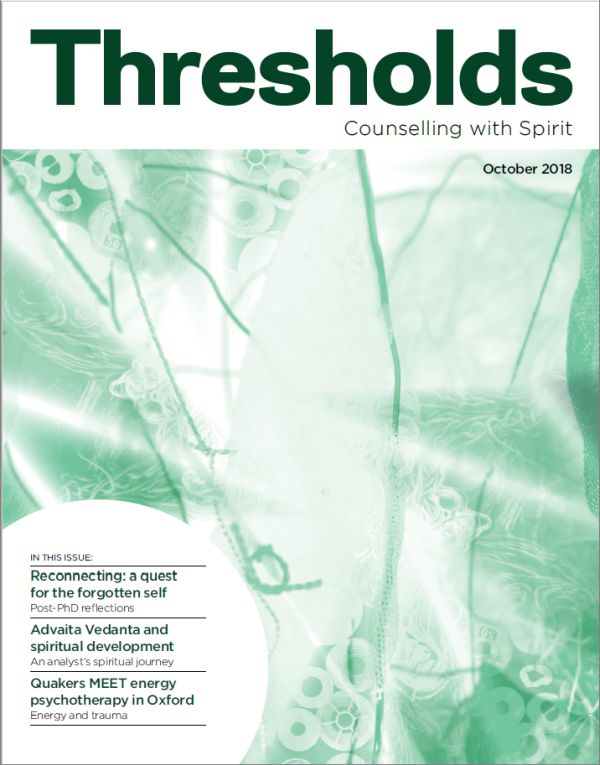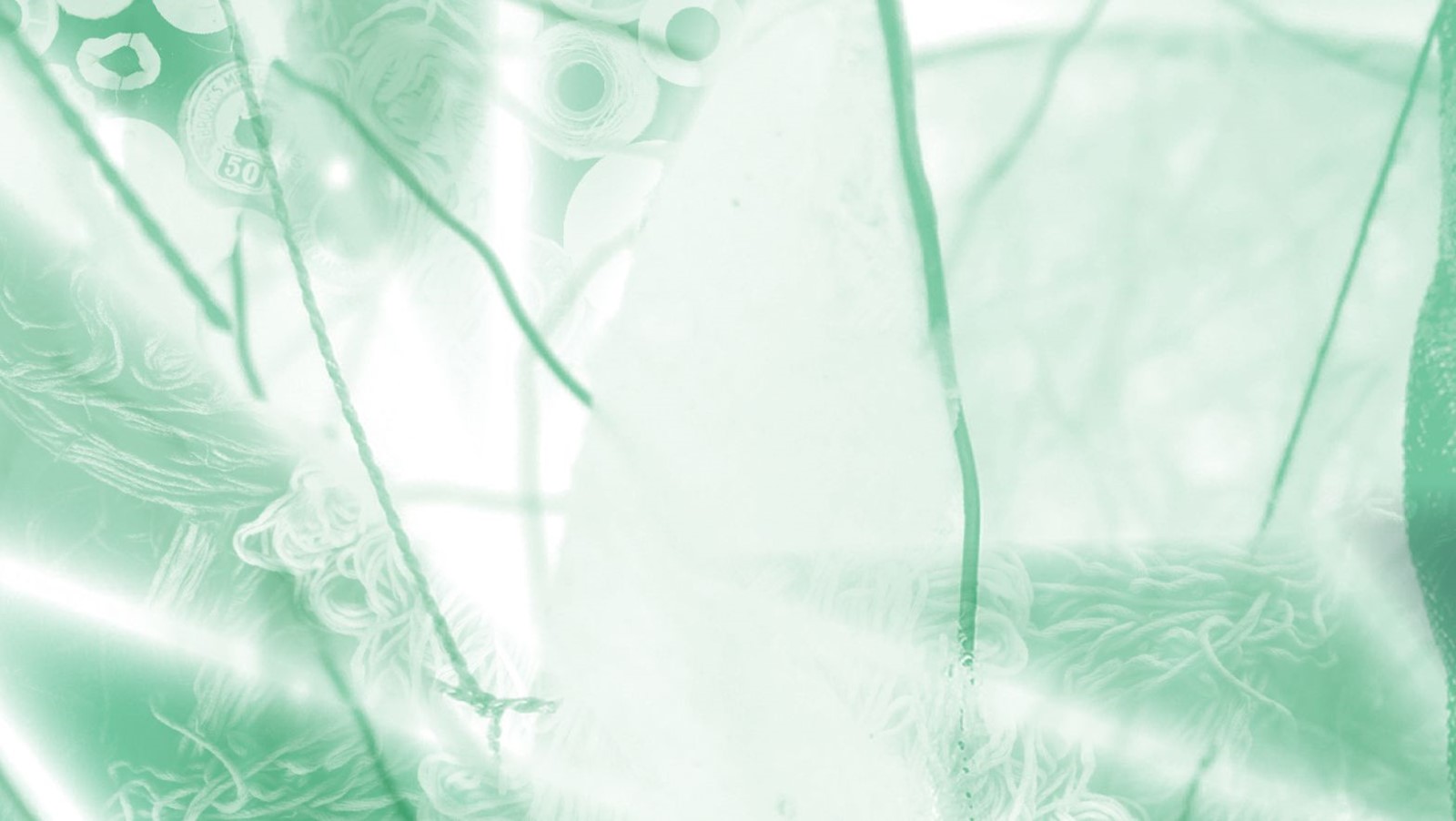In this issue
Features
Special focus
Reconnecting: a quest for the forgotten self (free article)
Alison Bell explores her experience of studying for an art-practice based PhD
People
Advaita Vedanta and spiritual development
David Sagar reflects on his own spiritual journey
Perspectives
Quakers MEET energy psychotherapy in Oxford
Sandra Figgess reflects on her work with trauma
Perspectives
Looking back in joy
Amanda Anderson visits an exhibition about Tolkien’s life
Obituary
Mick Cooper remembers the life of John Rowan
Regulars
From the chair
Now is the time to... Maureen Slattery-Marsh

A pdf of this issue is available in the Thresholds archive
Editorial: Coming apart at the seams
There have been moments where I’ve had a sense that my life didn’t fit me or, I didn’t fit my life any longer. During a particularly challenging time, I wrote ‘I’m coming apart at the seams’ in a diary. Sometimes I’ve felt I have outgrown my life. The Sanskrit word sutra means ‘thread’ and is used to name sacred texts in religions from India. The English word suture originates from sutra.
Anyone who has embarked on a period of intense study involving much self-reflection can feel a sense of anticlimax when the study ends. As students, we’re encouraged to write about our experiences and attempt to hone meaning and understanding from our reflective journals. It can be an exhausting business. Ira Progoff, the American psychotherapist who developed the intensive journal process, wrote: ‘Insofar as the past is over and the future has not yet transpired, the midpoint is an open movement of possibility. Properly used, it becomes like the eye of a hurricane, a quiet center of life, a free unconditional moment of opportunity.’1
Maybe we feel a need to tie up all the loose ends and things we’ve unravelled along the way. When I heard about the practice of weaving in deliberate mistakes in Persian carpets, I found it comforting. The Persian weavers acknowledge that only Allah is perfect. ‘A Persian rug is perfectly imperfect, and precisely imprecise’, according to a Persian proverb.2 This concept is sometimes referred to as the Persian flaw.
During a recent session, my supervisor reminded me of the Japanese word, kintsugi (translation, golden joinery). It is the practice of using gold to repair broken things.3 I thought of the lines in Leonard Cohen’s song, Anthem, ‘Forget your perfect offering. There is a crack in everything. That’s how the light gets in’.4
I’m looking forward to the ‘Working with soul in supervision’ event in Newcastle-upon-Tyne on 11 October and spending time reflecting on supervision.
Amanda Anderson
thresholds.editorial@bacp.co.uk
References
1. Progoff I. At a journal workshop: the basic text and guide for using the intensive journal process. New York: Dialogue House; 1975.
2. https://www.linkedin.com/pulse/four-pointsstory-being-perfect-john-kackley/ (accessed 12 September 2018).
3. https://www.theschooloflife.com/ thebookoflife/kintsugi/ (accessed 12 September 2018).
4. https://www.azlyrics.com/lyrics/ leonardcohen/anthem.html (accessed 12 September 2018).
